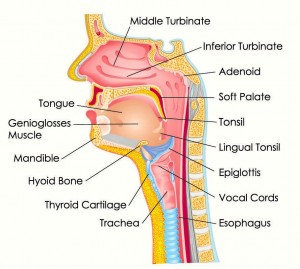Discovering the Area of Otolaryngology: What to Expect When You Speak With an ENT
Otolaryngology, commonly referred to as ENT, incorporates the medical diagnosis and therapy of throat, ear, and nose conditions. For those experiencing related issues, consulting an ENT expert can offer clearness and relief. Recognizing what to anticipate during such appointments is necessary for efficient interaction and care. This introduction will certainly outline essential facets of the ENT experience, consisting of usual reasons for visits and the procedures included in medical diagnosis and therapy.

Understanding Otolaryngology: An Overview
Otolaryngology, frequently referred to as ENT (Nose, throat, and ear) medication, is a specific branch of medicine that concentrates on the diagnosis and treatment of conditions impacting these critical areas of the human body. This field includes a variety of disorders, including those pertaining to hearing, balance, respiratory system function, and speech. Otolaryngologists are trained to handle both medical and medical therapies, making use of sophisticated techniques and technologies. Their competence prolongs past traditional ailments, dealing with issues such as allergic reactions, sinus infections, and hearing loss. Furthermore, they play an important role in the administration of head and neck cancers cells, giving detailed treatment customized to individual client needs. Overall, otolaryngology continues to be vital for keeping wellness and top quality of life in damaged people.
Typical Reasons to See an ENT Specialist
Several individuals look for the competence of an ENT expert for a variety of reasons, mirroring the diverse nature of problems that influence the throat, nose, and ear. Common issues consist of persistent sinusitis, which usually brings about persistent nasal blockage and face discomfort. Allergic reactions and their linked signs and symptoms, such as itching and sneezing, also prompt visits to these experts (Otorrinolaringologia). Hearing loss, whether progressive or abrupt, is one more significant reason for appointment. In addition, people may look for evaluation for throat problems, consisting of relentless hoarseness or swallowing troubles. Sleep apnea, characterized by disturbed breathing throughout rest, is frequently attended to by ENT experts also. Each of these conditions highlights the importance of specialized care in managing complicated ENT-related health concerns
Planning for Your ENT Appointment
When planning for an ENT consultation, it is vital to gather relevant info and think about any type of particular issues. Clients need to put together a comprehensive medical history, including previous ear, nose, or throat issues, surgeries, and current medicines. Documenting symptoms-- such as severity, duration, and frequency-- can offer beneficial insights for the ENT specialist. In addition, individuals should prepare a checklist of questions they wish to ask, making certain that all concerns are dealt with throughout the visit. Bringing along any relevant medical documents or test results can even more help the ENT in comprehending the individual's problem. People must verify their visit details, consisting of time, day, and location, to lessen any final confusion. Appropriate preparation can enhance the effectiveness of the consultation and result in far better results.
What to Expect Throughout the Examination
As the consultation starts, the individual can expect to take part in a complete discussion with the ENT expert about their signs and symptoms and medical background. The specialist will certainly ask about the period, regularity, and extent of signs and symptoms such as hearing loss, nasal congestion, or sore throat. Furthermore, the client's previous medical problems, medications, and any relevant family background will be examined, assisting the professional in creating a full understanding of the person's health and wellness. The ENT may likewise inquire about lifestyle factors, such as direct exposure to toxic irritants or irritants. This open dialogue establishes a foundation for the appointment, ensuring that the client's problems are resolved and establishing the phase for any required evaluations or referrals for treatment.
Analysis Examinations and Procedures in Otolaryngology
A series of diagnostic examinations and procedures are important in otolaryngology get more info to properly evaluate and diagnose problems influencing the nose, ear, and throat. Usual examinations consist of audiometry, which gauges hearing function, and tympanometry, evaluating middle ear pressure. Nasal endoscopy permits visualization of the nasal passages and sinuses, while laryngoscopy takes a look at the throat and vocal cords. Imaging techniques, such as CT scans and MRIs, give thorough sights of head and neck frameworks. Allergic reaction screening may likewise be performed to determine triggers for sinus or respiratory system problems. These analysis tools make it possible for ENT experts to develop a detailed understanding of patients' conditions, making sure tailored and reliable administration plans. Appropriate diagnosis is crucial for successful therapy results in otolaryngology.
Treatment Alternatives Used by ENT Specialists
ENT experts provide a variety of treatment choices tailored to resolve certain conditions influencing the ear, throat, and nose. These treatments vary from conventional techniques, such as medication and way of living alterations, to even more invasive treatments. Allergic reactions may be taken care of with antihistamines or immunotherapy, while persistent sinus problems might require nasal corticosteroids or sinus surgical procedure. For hearing loss, ENT professionals usually recommend listening device or medical treatments like cochlear implants. In instances of throat conditions, choices can consist of speech therapy or medical treatments to remove blockages. In addition, they may give assistance for taking care of rest apnea, including making use of CPAP tools or medical interventions. Overall, the goal is to enhance people' high quality of life with customized care and efficient treatment approaches.
When to Look For Follow-Up Care With an ENT
When to look for follow-up care with an ENT professional is important for managing recurring symptoms or complications connected to ear, nose, and throat conditions, acknowledging. Individuals ought to consider scheduling a follow-up visit if signs linger in spite of preliminary treatment, such as persistent ear pain, nasal blockage, or throat discomfort. Changes in hearing, equilibrium issues, or uncommon nasal discharge might likewise warrant further assessment. Additionally, if an individual experiences side effects from recommended medications or has gone through a procedure, follow-up care is necessary to check recovery and attend to any kind of issues. Prompt assessments can assure efficient management of problems, prevent potential complications, and give satisfaction concerning one's wellness. Seeking follow-up treatment advertises aggressive wellness administration in otolaryngology.
Frequently Asked Questions

What Credentials Should I Try to find in an ENT Specialist?
When seeking an ENT expert, one should look for board accreditation, relevant experience, and strong client testimonials. In addition, effective interaction abilities and a thoughtful method can greatly improve the total therapy experience.
How Do I Choose the Right ENT for My Requirements?
Selecting the appropriate ENT professional entails assessing their qualifications, experience, and individual reviews (ENT). It is important to consider their communication style and method to treatment, ensuring they line up with the person's specific health needs and preferences
Are There Any Kind Of Threats Related To ENT Procedures?
The threats related to ENT procedures might consist of infection, bleeding, anesthetic issues, and possible damages to surrounding structures. Individuals need to review these risks with their physician to understand individual concerns and guarantee informed choices.
Just How Can I Manage Anxiety Prior To My ENT Visit?
To take care of anxiety prior to a consultation, people can practice deep breathing exercises, visualize positive end results, prepare concerns beforehand, and look for support from buddies or family, fostering a feeling of reassurance and calmness.
What Should I Do if I Experience Negative Effects From Therapy?
The individual should without delay report them to their health care company if side effects from treatment take place. Adjustments to treatment or added treatments may be essential to ensure safety and security and performance in managing their condition - ENT Doctor. As the assessment starts, the individual can expect to involve in a detailed discussion with the ENT professional regarding their signs and medical history. These diagnostic tools allow ENT specialists to create a thorough understanding of clients' problems, making sure tailored and efficient monitoring strategies. ENT professionals offer a variety of therapy alternatives customized to attend to specific problems influencing the throat, nose, and ear. When seeking an ENT expert, one need to look for board accreditation, pertinent experience, and strong individual reviews. Choosing the best ENT specialist includes assessing their certifications, experience, and person reviews
Comments on “Struggling Through Sinus Pain? Here's When to Call a Sinus Specialist”